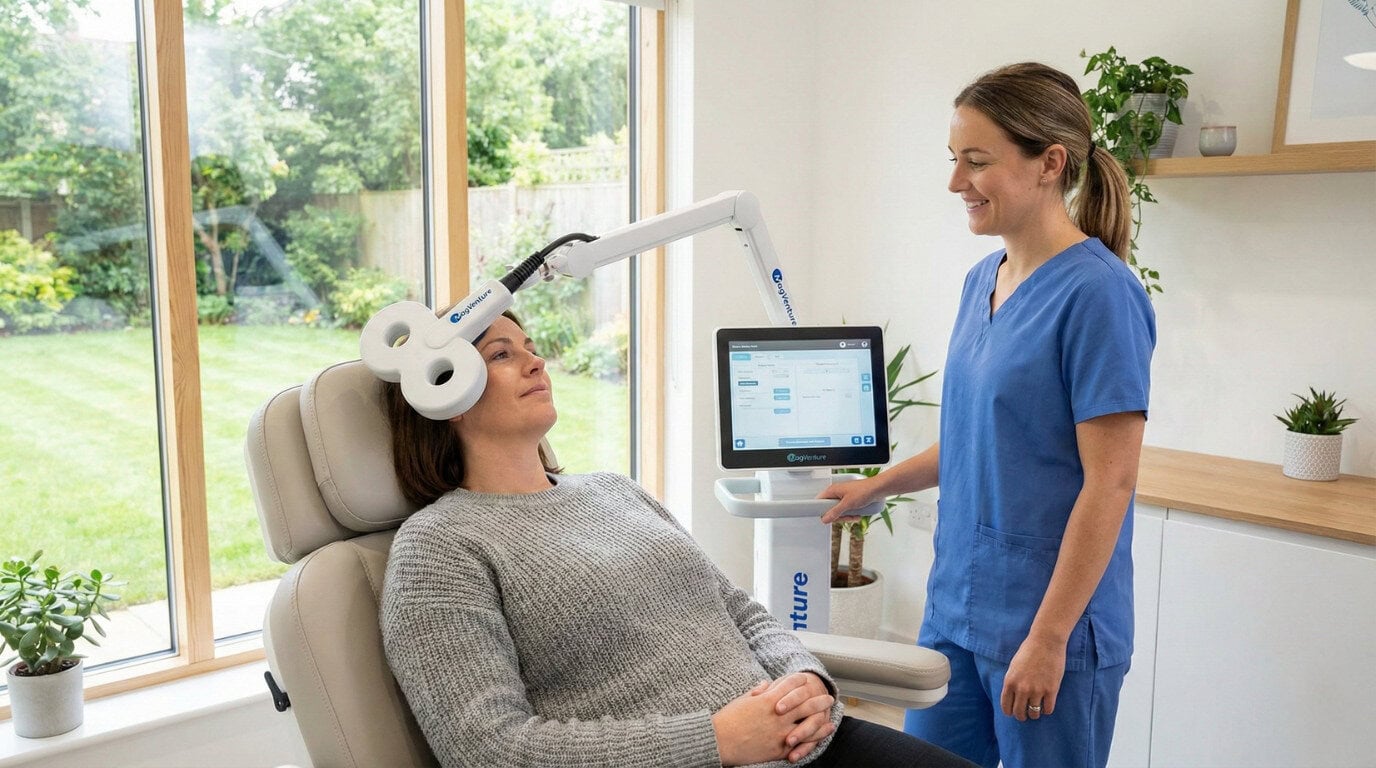
It’s common to feel sad or “down” from time to time. However, when these feelings persist and begin to interfere with your daily life, it may be a sign of something more serious. Understanding the difference between temporary sadness and clinical depression is the first step toward finding a path to wellness.
Depression is more than just a bad mood. It’s a medical condition with a range of emotional, physical, and behavioral symptoms. While symptoms can vary from person to person, common signs to look for include:
If you or a loved one are experiencing these symptoms for most of the day, nearly every day, for at least two weeks, it’s important to seek professional help.
Major Depressive Disorder, or MDD, is a serious mood disorder and the most common form of clinical depression. A diagnosis of MDD is made by a healthcare professional when an individual experiences five or more of the symptoms of depression for a period of at least two weeks, with at least one of the symptoms being a depressed mood or a loss of interest or pleasure in daily activities.
MDD can significantly impact an individual’s life, affecting their work, relationships, and overall well-being. It’s a condition that can be caused by a combination of genetic, biological, environmental, and psychological factors.
For many people, traditional treatments like medication and psychotherapy are effective. However, for those who have not found relief from these methods, a condition known as “treatment-resistant depression,” other options are available. This is where Transcranial Magnetic Stimulation (TMS) can make a significant difference.
TMS is a non-invasive, FDA-approved procedure that uses magnetic fields to stimulate nerve cells in the brain’s prefrontal cortex, a region involved in mood regulation. In people with depression, this area of the brain often has decreased activity. The magnetic pulses from the TMS device are designed to stimulate these cells, activating brain regions that have become underactive and helping to “reset” the brain’s networks.
Unlike Electroconvulsive Therapy (ECT), TMS does not require anesthesia or cause seizures. Patients remain awake and alert during the treatment, which is typically administered in a series of sessions over several weeks.
At Enlighten TMS, we are committed to providing innovative and compassionate care for those struggling with depression. We believe in a personalized approach to help each patient on their journey to wellness.
Important Disclaimer: This blog post is for informational purposes only and does not constitute medical advice. A diagnosis of depression or any other medical condition should only be made by a qualified healthcare professional. If you believe you may have depression, please consult with a doctor or mental health specialist.

